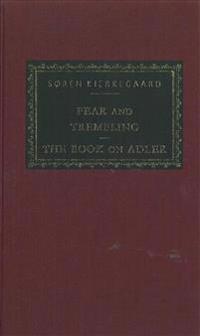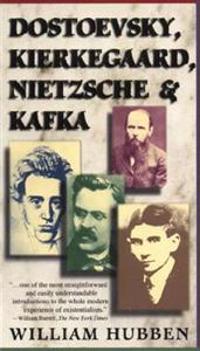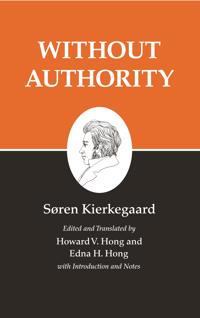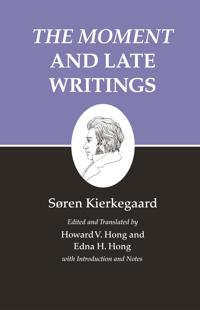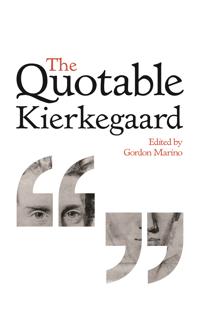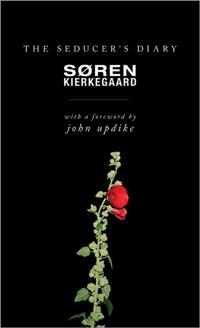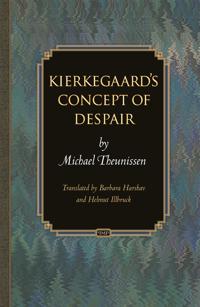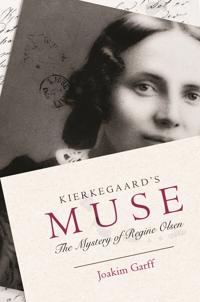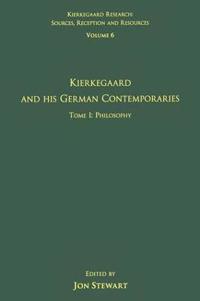Kierkegaard and Theology (Pocket)
avMurray Rae
ISBN: 9780567033130 - UTGIVEN: 201008This is an introduction to the influence of Kierkegaard's thought on the development of modern theology. Kierkegaard is in many respects an enigmatic figure. About half of his published work appears under an array of pseudonyms and Kierkegaard himself advises that readers should not presume his agre[...]
Fear and Trembling/the Book on Adler (Inbunden)
avSoren Kierkegaard
ISBN: 9780679431305 - UTGIVEN: 199404Two works in one volume. Introduction by George Steiner; Translation by Walter Lowrie
Dostoevsky, Kierkegaard, Nietzsche and Kafka (Pocket)
avWilliam Hubben
ISBN: 9780684825892 - UTGIVEN: 1997-05Previously published in 1962, a portrait of our philosophical times seen through the lives and writings of Dostoevsky, Kierkegaard, Nietzche and Kafka.[...]
Attack Upon Christendom (Häftad)
avSoren Kierkegaard
ISBN: 9780691019505 - UTGIVEN: 1968-04A religious diatribe written from within the Church against the established order of things in a presumably "Christian" land.[...]
Kierkegaard Anthology (Pocket)
avRobert Bretall
ISBN: 9780691019789 - UTGIVEN: 1973-11-01Chronicles Kierkegaard's intellectual and spiritual development through selected writings
Philosophical Fragments (Pocket)
avSoren Kierkegaard, Edna H. (EDT) Hong, Howard V. (EDT) Hong
ISBN: 9780691020365 - UTGIVEN: 1985-11This volume contains a new translation, with a historical introduction by the translators, of two works written under the pseudonym Johannes Climacus. Through Climacus, Kierkegaard contrasts the paradoxes of Christianity with Greek and modern philosophical thinking. In Philosophical Fragments he beg[...]
Practice in Christianity (Pocket)
avSoren Kierkegaard, Howard V. Hong, Edna Hatlestad (EDT) Hong
ISBN: 9780691020631 - UTGIVEN: 1991-10Of the many works he wrote during 1848, his "richest and most fruitful year," Kierkegaard specified Practice in Christianity as "the most perfect and truest thing." In his reflections on such topics as Christ's invitation to the burdened, the imitatio Christi, the possibility of offense, and the exa[...]
Kierkegaard's Writings (Häftad)
ISBN: 9780691020877 - UTGIVEN: 1992-06There is much to be learned philosophically from this volume, but philosophical instruction was not Kierkegaard's aim here, except in the broad sense of self-knowledge and deepened awareness. Indicating the intention of the discourses, the titles include' The Expectancy of Faith, ' Love Will Hide a [...]
Works of Love (Häftad)
avSoren Kierkegaard
ISBN: 9780691059167 - UTGIVEN: 199803The various kinds and conditions of love are a common theme for Kierkegaard, beginning with his early "Either/Or", through "The Diary of the Seducer" and Judge William's eulogy on married love, to his last work, on the changelessness of God's love. "Works of Love", the midpoint in the series, is als[...]
Kierkegaard's Concept of Despair (Inbunden)
avMichael Theunissen
ISBN: 9780691095585 - UTGIVEN: 200503The literature on Kierkegaard is often content to paraphrase. By contrast, Michael Theunissen articulates one of Kierkegaard's central ideas, his theory of despair, in a detailed and comprehensible manner and confronts it with alternatives. Understanding what Kierkegaard wrote on despair is vital no[...]
Søren Kierkegaard (Pocket)
avJoakim Garff
ISBN: 9780691127880 - UTGIVEN: 2007-04"The day will come when not only my writings, but precisely my life--the intriguing secret of all the machinery--will be studied and studied." Sren Kierkegaard's remarkable combination of genius and peculiarity made this a fair if arrogant prediction. But Kierkegaard's life has been notoriously hard[...]
Christian Discourses (Pocket)
avSoren Kierkegaard, Howard V. (EDT) Hong, Edna H. (EDT) Hong
ISBN: 9780691140780 - UTGIVEN: 2009-09First published in 1848, Christian Discourses is a quartet of pieces written and arranged in contrasting styles. Parts One and Three, "The Cares of the Pagans" and "Thoughts That Wound from Behind--for Upbuilding," serve as a polemical overture to Kierkegaard's collision with the established order o[...]
Without Authority (Pocket)
avSoren Kierkegaard, Howard V. (EDT) Hong, Edna H. (EDT) Hong
ISBN: 9780691140797 - UTGIVEN: 2009-10"Without authority," a phrase Kierkegaard repeatedly applied to himself and his writings, is an appropriate title for this volume of five short works that in various ways deal with the concept and practice of authority. The Lily in the Field and the Bird of the Air contemplates the teaching authorit[...]
The Moment and Late Writings (Pocket)
avSoren Kierkegaard, Howard V. (EDT) Hong, Edna H. (EDT) Hong
ISBN: 9780691140810 - UTGIVEN: 2009-09Kierkegaard, a poet of ideals and practitioner of the indirect method, also had a direct and polemical side. He revealed this in several writings throughout his career, culminating in The Moment, his attack against the established ecclesiastical order. Kierkegaard was moved to criticize the church b[...]
The Quotable Kierkegaard (Inbunden)
ISBN: 9780691155302 - UTGIVEN: 2013-11"Why I so much prefer autumn to spring is that in the autumn one looks at heaven - in the spring at the earth." (Soren Kierkegaard). The father of existentialism, Soren Kierkegaard (1813-1855) was a philosopher who could write like an angel. With only a sentence or two, he could plumb the depths of [...]
Fear and Trembling and the Sickness Unto Death (Pocket)
avSoren Kierkegaard
ISBN: 9780691158310 - UTGIVEN: 2013-04-28The Seducer's Diary (Häftad)
avSoren Kierkegaard
ISBN: 9780691158419 - UTGIVEN: 201305"In the vast literature of love, The Seducer's Diary is an intricate curiosity--a feverishly intellectual attempt to reconstruct an erotic failure as a pedagogic success, a wound masked as a boast," observes John Updike in his foreword to Soren Kierkegaard's narrative. This work, a chapter from Kier[...]
Kierkegaard's Concept of Despair
ISBN: 9780691163123 - UTGIVEN: 2016-09The literature on Kierkegaard is often content to paraphrase. By contrast, Michael Theunissen articulates one of Kierkegaard's central ideas, his theory of despair, in a detailed and comprehensible manner and confronts it with alternatives. Understanding what Kierkegaard wrote on despair is vital no[...]
Kierkegaard's Muse: The Mystery of Regine Olsen
ISBN: 9780691171760 - UTGIVEN: 2017-06The first biography of Kierkegaard's literary muse and one-time fiancee, from the author of the definitive biography of the philosopherKierkegaard's Muse, the first biography of Regine Olsen (1822-1904), the literary inspiration and one-time fiancee of Danish philosopher Soren Kierkegaard, is a movi[...]
Kierkegaard and Levinas: The Subjunctive Mood (Inbunden)
avPatrick Sheil
ISBN: 9780754617112 - UTGIVEN: 2008-12-28Kierkegaard and His German Contemporaries (Inbunden)
avJon (EDT) Stewart
ISBN: 9780754661825 - UTGIVEN: 2007-09This volume explores in detail Kierkegaard's various relations to his German contemporaries. Kierkegaard read German fluently and made extensive use of the writings of German-speaking authors. Apart from his contemporary Danish sources, the German sources were probably the most important in the deve[...]


